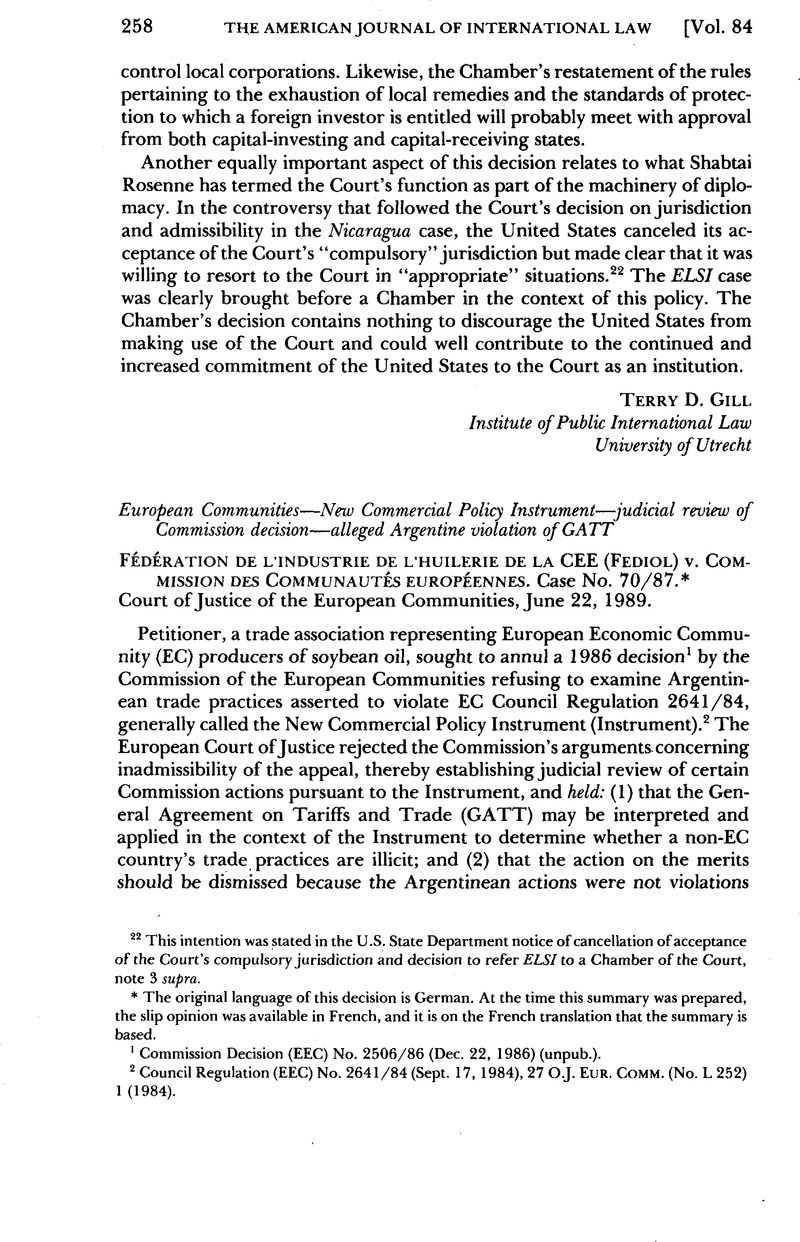Published online by Cambridge University Press: 27 February 2017

The original language of this decision is German. At the time this summary was prepared, the slip opinion was available in French, and it is on the French translation that the summary is based.
* The original language of this decision is German. At the time this summary was prepared, the slip opinion was available in French, and it is on the French translation that the summary is based.
1 Commission Decision (EEC) No. 2506/86 (Dec. 22, 1986) (unpub.).
2 Council Regulation (EEC) No. 2641/84 (Sept. 17, 1984), 27 O.J. Eur. Comm. (No. L 252) 1 (1984).
3 Id., Art. 1(a) and (b).
4 Id., Art. 2(1).
5 Id., Art. 6(1) (emphasis added).
6 Case 70/87, French slip op. at 5–6, paras. 6–8. Article 3 of the Instrument requires a complaint to contain “sufficient evidence of the existence of illicit commercial practices and the injury resulting therefrom.” Fediol submitted that the Argentinean practices injured the Community’s soybean oil industry by discouraging Argentinean soybean exports, by increasing the sales of Argentinean soybeans to Argentinean oil producers below world market prices, and by lowering the price of Argentinean-produced oil to a level less than that demanded by the European industry.
7 Slip op. at 9–10, paras. 18–19 (citing joined Cases 21–24/72, International Fruit Co. N.V. v. Produktshap voor Groenten en Fruit, 1972 ECR 1219; and citing in particular Joined Cases 267–269/81, Amministrazione delle Finanze dello Stato v. Societe Petrolifera Italiana S.p.A. (SPI) and S.p.A. Michelin (SAMI), 1983 ECR 801).
8 Id. at 11–12, para. 21 (relying on the Court’s decision regarding dispute settlement procedures under the EEC-Portugal Free Trade Agreement, Case 104/81, Hauptzollamt Mainz v. C.A. Kupferberg & Cie., 1982 ECR 3641).
9 See Meessen, Europe en Route to 1992: The Completion of the Internal Market and Its Impact on Non-Europeans, 23 Int’l Law. 359, 368–370 (1989), for an analysis of the New Commercial Policy Instrument as a weapon in the European Community’s arsenal of trade policy measures to be used against third states.